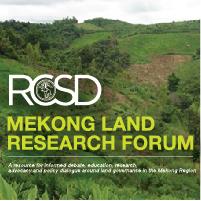Resource information
Đổi Mới, the name given to the economic reforms initiated in 1986 in Vietnam, has renewed the party-state’s ambitious scheme of industrialization and has intensified the process of urbanization in Vietnam. A large area of land has been converted for these purposes, with various effects on both the state and society. This article sheds light on how land conversion has resulted in farmers’ resistance and in what way and to what extent it has transformed their livelihoods in the transitional context of contemporary Vietnam. The article argues that agricultural land use rights remain an important asset for Vietnamese farmers, containing great value and meaning for them besides forming a means of production and therefore a source of income. Because the contemporary land tenure system has not yet recognized an adequate level of private property in relation to land, agricultural land conversion often becomes a contested issue and has often disrupted farmers’ traditional livelihoods, forcing them to face insecure livelihood prospect.


